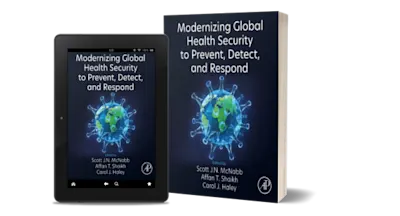LIMITED OFFER
Save 50% on book bundles
Immediately download your ebook while waiting for your print delivery. No promo code needed.

To write effective code and applications, software engineers and developers have to be able to frame user/customer needs effectively, capture program requirements and use cases,… Read more
LIMITED OFFER
Immediately download your ebook while waiting for your print delivery. No promo code needed.

PC
Dr. Paolo Ciancarini is a Tenured Professor at the Department of Computer Science and Engineering of the University of Bologna – Alma Mater Studiorum. He lectures on Software Engineering and Software Architecture. In the period 2000-2004 he has served as Chair of the undergraduate and graduate studies in Computer Science at the University of Bologna. In the period 2008-2011 he has served as Chair of the Joint PhD Schools in Information and Communication Technologies at the University of Bologna. He is currently the coordinator of the area panel for Computer Science and Engineering for the research evaluation committee of the University of Bologna. He has also been president of the CINI, the Consortium of Computer Science and Computer Engineering Departments in Italian University and of GRIN, the association of Italian Computer Science Professors. He is author of hundreds of publications in computer science and software engineering and has lead multiple externally funded projects and consulting initiatives in the area of software.
AE
Dr. Ahmed ElBatanony is a Senior Software Engineer with several years of experience in the industry, complemented by his role as an Instructor at Innopolis University. He earned both his bachelor’s and master’s degrees with honors from Innopolis University in Software Engineering and Computer Science. His research focuses on the application of No-Code tools in app development, particularly Google's AppSheet, which he explored in his master’s thesis. Ahmed has contributed to academic literature on topics such as the implications of no-code tools for smart cities and the Pareto Distribution of Software Features. He is actively involved in conferences and workshops, including the ACM SIGPLAN International "Beyond Code: No Code" Workshop at SPLASH 2021, where he not only participated but also contributed to program and organizing committees, shaping discussions about the future of software development without traditional coding. Besides his research, Ahmed is dedicated to teaching and has been instrumental in various courses at Innopolis University, inspiring and educating the next generation of tech enthusiasts.
GS
Dr. Giancarlo Succi is a highly accomplished academic and professional with extensive experience in computer science and software engineering. He currently holds the position of Tenured Professor at the University of Bologna – Alma Mater Studiorum. Prior to this role, he has held various prestigious positions at different institutions, including Tenured Professor at Innopolis University in Russia, where he served as Dean of the Faculty of Computer Science and Engineering. He also held positions at the Free University of Bolzano-Bozen in Italy, the University of Alberta, and the University of Calgary in Canada, as well as the University of Trento in Italy. Dr. Succi holds a Laurea degree in Electrical Engineering, an MSc in Computer Science, and a PhD in Computer and Electrical Engineering. He is a registered Professional Engineer in both Italy and Alberta, Canada. His research interests encompass various areas of artificial intelligence, data science, and software engineering, with applications in economics, finance, and management sectors. He has been involved in creating startups, securing significant research funding, and has authored over 500 research publications. Dr. Succi has also played leadership roles in international conferences and journals, boasting impressive h-index scores on Google Scholar and Scopus.
Furthermore, Giancarlo Succi has consulted for numerous private and public organizations worldwide, providing expertise in artificial intelligence, data science, software system architecture, design, development, software organization strategy, and personnel training.